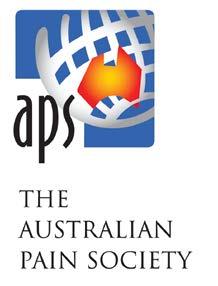Australian Pain Society NEWSLETTER

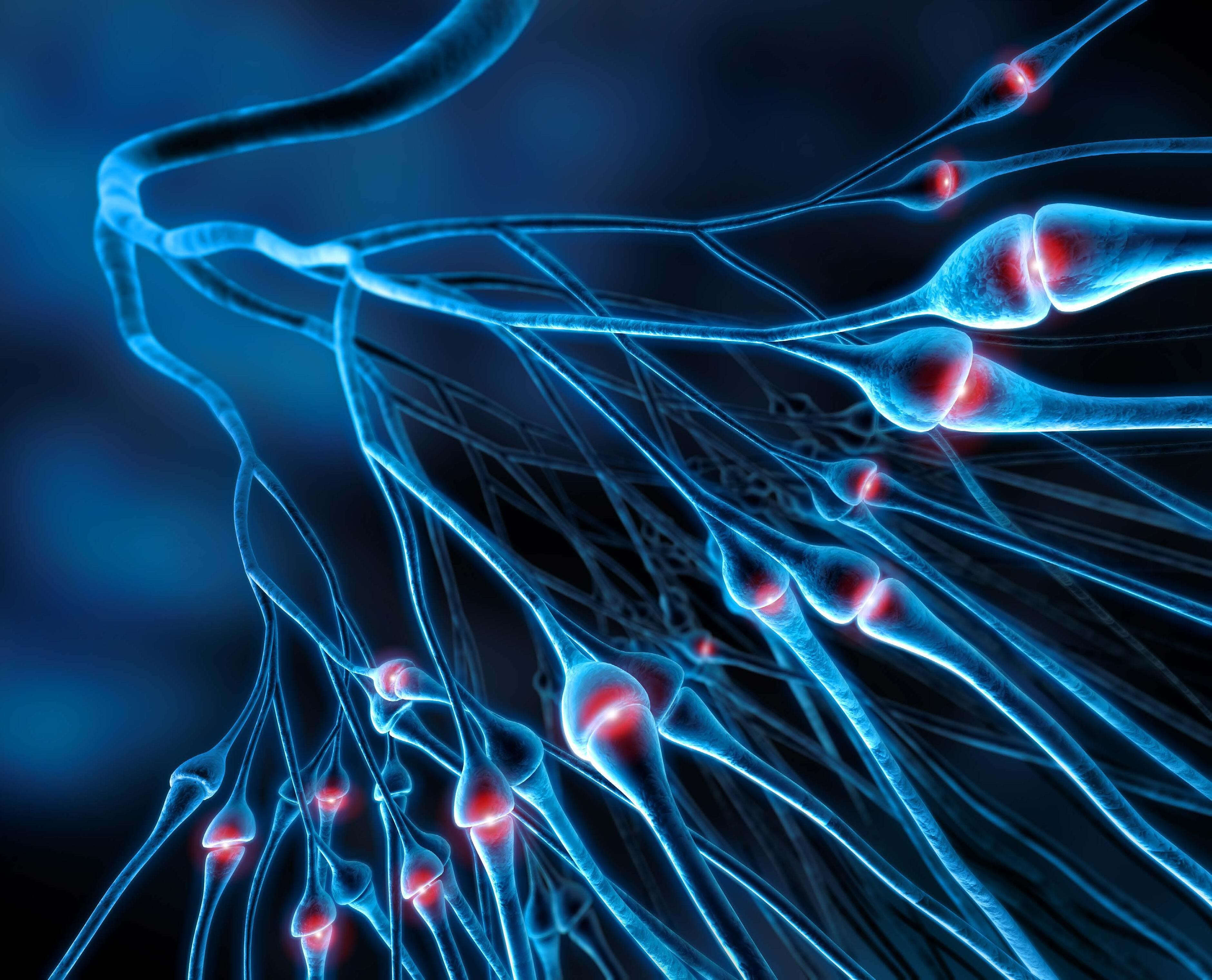



The 42nd ASM conference in Hobart is about to kick off from the 10-13th April in Hobart Tasmania. Don’t panic, you can still go, the countdown is on, and we are now in the last days to register. Better late than never. If you are stuck with what to do with the action-packed program, don’t stress- there is a ‘to-do’ list on the conference app we can all download.
Looking forward to seeing all the action from the conference on twitter, the hashtag to use is #AusPainSoc. This year to make up for not having had a face-to-face conference for several years, there is a great range of international and national speakers, many pre-conference workshops and the AGM will be held as well.
While delegates are traveling to the conference, why not check out the latest publications on two very interesting questionnaire developments. Start with the paper by Pate et al (2022) on their work on a concept of pain inventory for adults. Then check out the paper by O’Hagan et al (2022) on their development of a questionnaire on low back pain for clinicians in the first line of care. After you have read their papers, start to think about your own papers/publications/quality improvement projects and make a reminder to start sending them on for inclusion into the next APS newsletter.
Now that we are all pumped for the conference, and have explored the recent publications, why not consider putting in an application for the HCF scholarship round, or start work on putting together an APS PhD scholarship application?
Want to know more about what it is like for those challenged with pain? The One Thing podcast is back. Season Two includes Pete Moore (the creator and author of the PainToolkit).
Have a great time at the conference everyone, either in person or catching up on the recordings that can be purchased afterwards.
Kind regards
Dr Joanne Harmon
You’ll enjoy an extensive program including pre-conference workshops, international keynote speakers, national speakers and topical sessions.
Join the many other professionals that are involved with pain and pain management and learn with clinicians and researchers across many different aspects of pain management, leaving the conference enabled to make that difference in your sphere of work.
Registrations will increase slightly from 7 April 2022. Register before Wednesday 6 April, 11.59 PM AEDT to save yourself $50 on your registration. Plan your conference experience today.
Cannabinoids Debate
Pre and Post Tours
For further information please visit the conference website
Should you have any queries about the conference, please contact the Conference Secretariat. We look forward to welcoming you – finally – to Hobart, Tasmania!

Already registered for APS 2022? We can’t wait to see you soon!
We’ve put together a conference to-do list to make sure you’re fully prepared for the event of the year. See how many boxes you can tick before arriving at the Hotel Grand Chancellor Hobart.
Download the Conference App (pin code to access the APS 2022 app has been sent to registered delegates)

Pay all outstanding balances or call the APS Secretariat at +612 9954 4400 if you wish to pay over the phone
Book a pre/post tour to soak up the full experience that Tasmania has to offer Register for a sponsored session
Choose your social functions
Choose a pre-conference workshop
Book your Gala Dinner tickets
Read the General Information (information has been sent to registered delegates)

Start using the hashtag #AusPainSoc

If you’re presenting or have a poster at the APS 2022, make sure you’ve ticked these boxes too…
Save presentation onto USB and visit the Speaker Prep room at least ONE HOUR before your presentation

Print a hard-copy poster & submit your digital poster (Poster Presentation Guidelines)
Review the additional guidelines for any extra tips or trick (Free Paper Presentation Guidelines)

We look forward to welcoming you to Hobart. Should you have queries, please contact the Conference Secretariat.
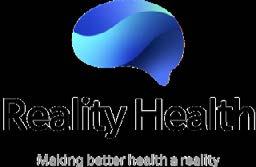
We are less than a week away and are so excited to be meeting face to face again!
The Australian Pain Society 42nd Annual Scientific Meeting will be held from 10-13 April 2022 at the Hotel Grand Chancellor Hobart, Tasmania. Review the full program here: Program Overview
Here are just a few things we are looking forward to:
Professor Andrew Rice
Monday 11 April, 3.45pm – 4.20pm
Cannabinoid Analgesia: What is the Evidence for Benefit and Harm?
Tuesday 12 April, 04.10pm – 04.45pm
Update on diagnosis and clinical assessment of patient with neuropathic pain
Professor Beverly Thorn
Monday 11 April, 09.25am – 10.00am
Cognitive-Behavioural Approaches for the Hard to Reach patient with Pain: Issues of Education, Literacy, and Disparity
Tuesday 12 April, 09.00am – 09.25am
Sunderland Lecture - Helping Patients Use the Brain as an Ally in Chronic Pain Self-Management
Is Medicinal Cannabis the next opioid crisis? Perspectives on pain, people and policy
Monday 11 April 2022, 4.30pm - 5.15pm
Medicinal cannabis is a hotly debated topic, often argued by passionate voices with firmly held beliefs. But what does the evidence really say about this product in the pain sector? And what are the political and consumer implications of this debate? This session invites you to join a lively expert panel discussion exploring all sides of medicinal cannabis including the good, the bad, the political, and the consumer perspective.
Sunday 10 April 2022
The APS’s Pre-Conference Workshop Day provides delegates with a flexible approach when it comes to choosing what they attend. All workshops are offered as half days, giving delegates the opportunity to personalise their own learning.
Customise your conference experience by attending the Acute Pain Workshop in the morning, before heading over to the Pharmacology in Pain Management afternoon session.
APS Members who attend the conference are rewarded with more competitive workshop registration fees, so start planning your week in Hobart today by becoming an APS Member
Pick the Brain of a Pain Researcher!
Monday 11 April 2022, 5.30pm – 6.30pm
This session will focus on research careerdevelopment for junior researchers and clinicians wanting to understand how to build on their research strengths to establish their research careers. Topics of discussion include publishing, getting project and fellowship funding, and doing research with impact.
Don’t miss out, register today!
For further information please visit the conference website.
Sunday 10 April, From 7.30pm
The Basic Pain Research and Pain in Childhood SIG Dinner quickly sold out at the original venue that had been booked.
Considering it has been 3 years since we have connected in-person, the APS felt it was important to find a new venue that would fit everyone who wanted to attend.
So we are delighted and excited to announce that the SIG Dinner has been relocated to Post Street Social. If you have an interest in Pain in Childhood or Basic Pain Research, come along and enjoy a Mexican Feast with likeminded colleagues.
Tuesday 12 April, 7.00 – 11.00pm
The APS Conference Secretariat has been offered the opportunity to use a brand new Hobart event space and we are excited to announce that the Conference Gala Dinner is now being held at Waterline Brooke Street Pier.
From the Hotel Grand Chancellor, enjoy a short stroll along the Hobart foreshore. This change will give delegates more time between the end of the conference program on Tuesday and the start of the Dinner, as well as the flexibility to head home when they’re ready.
Registrations are still open! To register please click here, and don’t forget to add these social activities to your registration.
If you are already registered, but would like to add a ticket to your registration, please contact the Conference Secretariat via email: aps2022@dcconferences.com.au or phone: +612 9954 4400. We can’t wait to reconnect with all APS Members really soon.
If you have any questions please contact the Conference Secretariat.
Translating pain knowledge to acute pain practice across disciplines
Join us in this broad-based workshop to suit all knowledge levels and a variety of specialist areas with a multi-disciplinary focus in the field of Acute Pain Management. The aim is to share information, evidence, and our experiences with a focus on a pragmatic approach to optimise our practice. Issues pertinent to today’s challenges will be presented with opportunities to discuss and propose solutions to our greatest problems. It will help update our core knowledge, as well as find ways to move forward in this constantly challenging and vital area of medical care.
When: Sunday 10 April 2022, 8.30 am – 5.00 pm
Where: Hotel Grand Chancellor, Hobart
Cost: Start from $180 (Full Day) per person
To register or for further information please visit the Conference Website
The Fundamentals of Pain pre-conference workshop is a succinct overview of the physiology, clinical assessment, and clinical management of pain. The workshop is aimed at the general practitioner, specialist, allied health clinician, or psychologist looking for an introduction to, or update on, persistent pain management.
This workshop is grounded in a biopsychosocial understanding of pain mechanisms and developing a mechanism-based approach to pain assessment and management.
This workshop will compliment those with an interest in attending an afternoon session of pharmacology, acute pain, or Physiotherapy topics.
When: Sunday 10 April 2022, 8.30 am – 12.30 pm
Where: Hotel Grand Chancellor, Hobart
Cost: Start from $130 per person
To register or for further information please visit the Conference Website
Inter-disciplinary pain management has been the “gold standard” approach for decades. When it works, it is tremendous! But, there are many challenges applying this in practice. From interpersonal difficulties to systemic regulations, achieving strong communication and a united team approach can be hard to achieve.
This workshop will look at the benefits and challenges of inter-disciplinary pain management. Attendees will leave this workshop stimulated as to how they could improve this care in their own work setting.
When: Sunday 10 April 2022, 1.30 pm – 5.00 pm
Where: Hotel Grand Chancellor, Hobart
Cost: Start from $130 per person
To register or for further information please visit the Conference Website

This workshop will showcase the latest in Australian basic pain research from early career and senior researchers, and provide a forum to discuss mechanisms of nociception and pain across all levels of investigation: from molecular and cellular analyses, to studies in animals and humans (pre-clinical or clinical).
This workshop is open to all interested in mechanisms of nociception and pain including basic and clinical researchers, health professionals, and students at all levels.
When: Sunday 10 April 2022, 8.30 am – 12.30 pm
Where: Hotel Grand Chancellor, Hobart
Cost: Start from $130 per person
To register or for further information please visit the Conference Website.
Translating current evidence in the management of nociplastic pain conditions into clinical practice
The intended audience includes GPs, Pharmacists, Specialists, and other Allied Health professionals with interest in pharmacology and its application in persistent pain within the clinical setting.
In line with the IASP Global Year of translating knowledge into practice, this interactive workshop will focus on the evidence-based learnings of nociplastic pain conditions. It will explore, pharmacological, complementary medicines, and
the possible correlations of the gut microbiome in chronic pain conditions. We’ll also explore the evidence of placebo response and techniques and its influential role in each of our interactions with patients having a magnifying (or inhibiting) the powerful medication we dispense.
The workshop will include a case study for practical application of principles that will be addressed by the various expert speakers. There will be opportunities for questions and networking with peers, so that current evidence-based knowledge can be optimised and translated in everyday practice.
When: Sunday 10 April 2022, 1.30 pm – 5.00 pm
Where: Hotel Grand Chancellor, Hobart
Cost: Start from $130 per person
To register or for further information please visit the Conference Website
Have you ever wanted to ask a well-known researcher –“How did you know this was for you?”
“How did you know what opportunities to say yes to and what to say no to?”
If you have wanted to ask, now is your chance!
This session is for early career researchers, and includes networking opportunities with a number of the plenary speakers including:
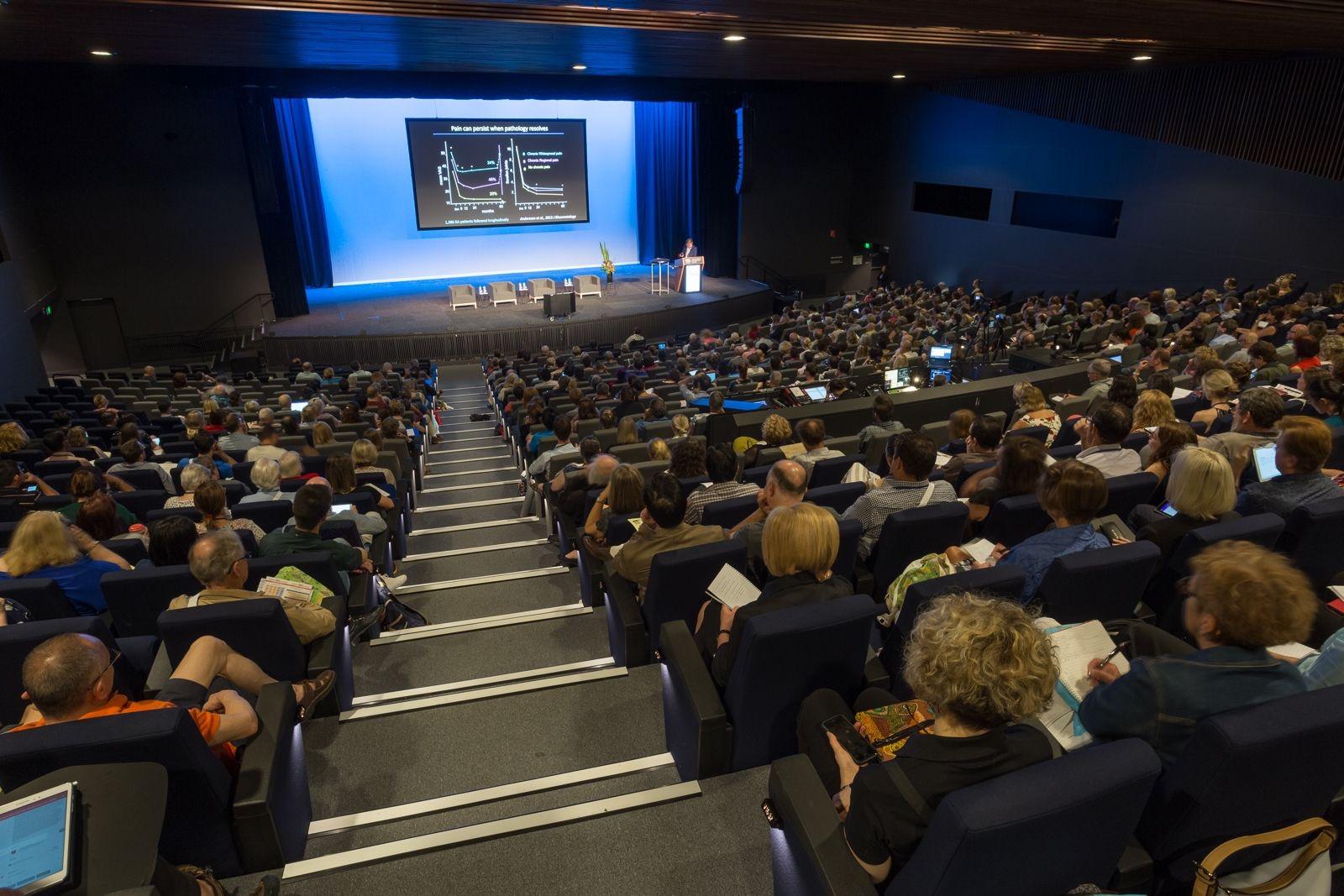
> Dr Christine Barry, Flinders University, SA
> Professor Steve Kamper, University of Sydney, NSW
> A/Professor Suzanne Nielsen, Monash Addiction Research Centre, VIC
> Professor Andrew Rice, Imperial College London, United Kingdom
Date: Monday 11 April 2022
Time: 5:30pm - 6:30pm
Cost: $10 per person, includes a drink on arrival
When registering for the conference, don’t forget to add in a ticket to the Trainee Session! To register click here
Last Chance!
Recordings from APS 2021 will expire on 30 April 2022.
Did you miss any live sessions from the last APS Conference and webinar series?
Or do you just want to re-watch your favorite sessions?
On demand recordings are still available in the APS 2021 Portal.
This is your last opportunity to access all session recordings and poster presentations from APS 2021.
For any assistance in accessing the portal or other information please contact APS Conference Secretariat.
will be held at the Annual Scientific Meeting from 7:30 – 8:45am AEST in the Federation Concert Hall on Wednesday 13 April 2022 at the Hotel Grand Chancellor, Hobart, TAS
A General Business Meeting (GBM) will immediately follow the AGM
Breakfast will be served at this meeting
To assist with catering, we request that you indicate your attendance when you register for the conference. If your choice changes, please contact the Conference Secretariat
The AGM Information Pack was emailed to members and includes:
• Notice of AGM
• AGM Agenda and following GBM Agenda
• Proxy Form
• Minutes from previous AGM and GBM
• Biographies of nominee directors (current director biographies can be found on our website)
• The By-Laws to support the APS constitution (also available on the Members only portal of the APS website)
The following are available on the Members only portal of the APS website:
• the Financial Accounts of the APS for the year ended 31 December 2021
• the Australian Pain Society Constitution and By-Laws
If you are unable to attend the AGM please send your apology and proxy form via the link sent by separate email from the APS Secretariat or by email to aps@apsoc.org.au by 7:30am AEST 11 April 2022.


The gold standard in Pain Management for Older People is now available in eBook format!

In this edition:
Chapter 1: About Pain
Chapter 2: Identi cation and assessment of pain in aged care residents

Chapter 3: Beyond medication: psychological and educational approaches to pain management
Chapter 4: Movement and physical activity
Chapter 5: Complementary approaches to pain
Chapter 6: Pharmacological treatments
Chapter 7: Dementia and cognitive impairment: special considerations

Chapter 8: Pain at the end of life
Chapter 9: Pain and nutrition
Chapter 10: Quality and systems issues

Graduating from UTAS in 1992 Bernadette spent the next 10 years working as a Psychologist for Community Mental Health Services in Tasmania. Bernadette moved into private practice (Psychology Plus) in 2003 where she developed a special interest in the treatment of chronic pain and health education.
How did you get into pain research/clinician practice?
I kind of fell into psychology after a mad panic of realising pharmacy wasn’t for me. I initially considered going and doing law after pharmacy, but the course was fully subscribed for that year. It’s probably a good thing in hindsight—I would have made a terrible lawyer! So, I ended up tagging along with friends to some introductory lectures and ended up in a psychology lecture. From there, I was hooked.
The only information I learned about pain during my training was the biopsychosocial model of health and illness as well as the Gate Control Theory. It meant I had a somewhat limited capacity to engage with chronic pain patients when I first graduated. I started working in child and adolescent mental health before eventually moving into private practice in regional Tasmania and began seeing chronic pain patients.
It was a jarring transition, initially, as the referrals felt like they were saying, “We can’t do anything more with these patients from a [bio]medical perspective—it’s over to you.” That feeling didn’t sit well with me and it sent me on a journey to learn more about pain science. Before too long I was asked to co-facilitate a Commonwealth funded pilot pain management project. We still have funding for that nine years later. Things really grew from there to take me to where I am today.
What do you think will be the next “hot topic” in your area of research or practice?
I think continually improving how we use patients as partners will be a big thing. We currently use patients as partners in our pain education programs. They bring so much face validity to what we talk about. Although as clinicians we have done all this study and have all this knowledge, sometimes that doesn’t get you any kudos with the patients. But bringing in a patient who has recovered, or is recovering, it helps patients see there is hope. It makes them feel like they can sit and listen to the pain science for a bit longer.
Tasmania is a small place with a tight knit pain community. I love to rabbit on about pain, and so a colleague suggested getting involved with the APS and the Board to channel that energy. I was an only child and have always sought out and been energised by interactions with peers. The real interdisciplinary nature of the APS—getting to work with people from outside your profession—I love that. You can’t work with people in pain by yourself from a clinical perspective, so it makes sense to be part of an interdisciplinary society.
If you could offer one piece of advice to a younger you, what would it be and why?
It’s not advice per se, but I’d love to tell my younger self, “Thanks for doing you. As imperfect as you were, I’m way wiser now because of all that.” And in another 20 years, I’ll be able to say the same thing!
Thank you to APS members Joshua Pate and Julia Hush, and their colleagues Laura Simons, Gillian Rush, Mark Hancock, Arianne Verhagen and Verity Pacey for sharing the following recent publication.
Article first published online: January 2022
Journal Reference: Pate, Joshua W. PhD*; Simons, Laura E. PhD†; Rush, Gillian BA†; Hancock, Mark J. PhD‡; Hush, Julia M. PhD‡; Verhagen, Arianne PhD*; Pacey, Verity PhD‡
The Concept of Pain Inventory for Adults (COPIAdult), The Clinical Journal of Pain: January 2022 - Volume 38 - Issue 1 - p 32-40
DOI: 10.1097/AJP.0000000000000990
Link: https://journals.lww.com/clinicalpain/ Abstract/2022/01000/The_Concept_of_Pain_ Inventory_for_Adults.5.aspx
Abstract
Objectives:
Assessing knowledge and beliefs regarding pain science can identify gaps and misconceptions. The Concept of Pain Inventory (COPI) was recently developed in children with the intent to guide targeted pain science education. We utilized the original COPI item pool to (1) develop a tool to assess an adult’s concept of pain in a cohort who had not received pain science education, (2) evaluate its psychometric properties, (3) examine distribution of scores in a cohort of adults who had received pain science education, and (4) examine associations between scores and clinical variables.
Materials and Methods:
A total cohort of 627 adults were recruited through social media for an online survey. Initial development was conducted on those who had not received prior pain science education (n=125), then the COPI-Adult tool was tested in those who had received prior pain science education (n=502).
Results:
The resulting unidimensional 13-item COPI-Adult had acceptable internal consistency (α=0.78) and good test-retest reliability at 1 week (Intraclass Correlation Coefficient3,1=0.84 (95% confidence interval: 0.71-0.91). Higher COPI-Adult scores reflect greater alignment with contemporary pain science. COPI-Adult scores were correlated with revised Neurophysiology of Pain Questionnaire (rNPQ) scores and inversely correlated with average and current pain intensity, and pain interference. Adults who reported having received pain science education had significantly higher mean COPI-Adult scores than those who had not, and this difference exceeded the smallest detectable change.
Discussion
The COPI-Adult is a brief questionnaire with promising psychometric properties to identify conceptual gaps or misconceptions to inform individualized pain science education.
Declaration
The authors declare no conflicts of interest.
The Australian Pain Society (APS) is keen to share publications from our members with their colleagues via our eNewsletter. If you’ve had an article accepted or published recently, please contact our Assistant Editor Joanne Harmon via the APS Secretariat (aps@apsoc.org.au) with the title, authors, and reference (i.e., journal, volume, and DOI) of your article and request the submission template. We would love it if you also supply a short commentary (300 words max) to give our readers the gist of the article.
Thank you to APS members Edel O’Hagan, Matthew Jones, Emma Karran, Adrian Traeger, Aidan Cashin, Benedict Wand, James McAuley and their colleagues Ian Skinner, Sean O’Neill, Siobhan Schabrun and Ian Harris for sharing the following recent publication.
Article first published online: 10-Jan-2022
Journal Reference: Health and Quality of Life Outcomes
DOI: 10.1186/s12955-021-01908-4
Link: https://hqlo.biomedcentral.com/ articles/10.1186/s12955-021-01908-4
Abstract
Introduction
Clinician time and resources may be underutilised if the treatment they offer does not match patient expectations and attitudes. We developed a questionnaire (AxEL-Q) to guide clinicians toward elements of first-line care that are pertinent to their patients with low back pain.
We used guidance from the COSMIN consortium to develop the questionnaire and evaluated it in a sample of people with low back pain of any duration.
Participants were recruited from the community, were over 18 years and fluent in English.
Statements that represented first-line care were identified. Semantic scales were used to measure attitude towards these statements. These items were combined to develop the questionnaire draft. Construct validity was evaluated with exploratory factor analysis and hypotheses testing, comparing to the Back Beliefs Questionnaire and modified
Pain Self-Efficacy Questionnaire. Reliability was evaluated and floor and ceiling effects calculated.
We recruited 345 participants, and had complete data for analysis for 313 participants. The questionnaire draft was reduced to a 3-Factor questionnaire through exploratory factor analysis. Factor 1 comprised 9 items and evaluated Attitude toward staying active, Factor 2 comprised 4 items and evaluated Attitude toward low back pain being rarely caused by a serious health problem, Factor 3 comprised 4 items and evaluated Attitude toward not needing to know the cause of back pain to manage it effectively. There was a strong inverse association between each factor and the Back Beliefs Questionnaire and a moderate positive association with the modified Pain SelfEfficacy Questionnaire. Each independent factor demonstrated acceptable internal consistency; Cronbach α Factor 1 = 0.92, Factor 2 = 0.91, Factor 3 = 0.90 and adequate interclass correlation coefficients; Factor 1 = 0.71, Factor 2 = 0.73, Factor 3 = 0.79.
This study demonstrates acceptable construct validity and reliability of the AxEL-Q, providing clinicians with an insight into the likelihood of patients following first-line care at the outset.
The AxEL-Q provides clinicians with a valid and reliable tool to understand patient attitudes toward first-line care for low back pain. Each subscale demonstrated acceptable construct validity and reliability, meaning that the questionnaire could be used as a whole or as individual subscales. The independent utility of the subscales allows clinicians to understand attitudes toward distinct aspects of first line care in people with low back pain.
Declaration
Edel O’Hagan has nothing to declare

The APS Board will be calling for applications for PhD Scholarships soon! Get your thoughts and paperwork together now!!
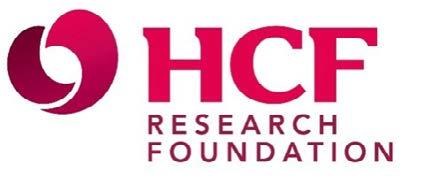

The HCF Research Foundation Health Services Research Grants 2022 program is now open for applications. Our 12th annual call for research projects will deliver funding to the research community from 1 January 2023.
For this year’s call we are inviting applications addressing one of the specific research areas of interest from the following two themes. We invite you to apply if your health services research project addresses one of the following areas:
1. WOMEN’S HEALTH
• Sexual and reproductive health;
• Preventative health / managing comorbidities; and
• Addressing variations in healthcare.
2. MENTAL HEALTH
• Prevention and early intervention;
• Emerging treatment and rehabilitation models; and
• Improving access and outcomes for regional and remote communities.
More information can be found here Applications close 5pm on Friday 13 May 2022 (AEST).
Applications for the 2022 RACGP Foundation/ HCF Research Foundation Research Grant have now opened.
The HCF Research Foundation and the RACGP Foundation have established a research grant to fund research into health services issues of relevance to general practice. To be eligible for the RACGP Foundation / HCF Research Foundation Research Grant, the principal investigator must be a general practitioner or general practice registrar.

Please visit https://racgpfoundation. smartygrants.com.au/HCF2022 for more information.
Applications for this research grant will close on Monday 2 May 2022.
Following the success of their initial season in 2021, One Thing is back for Season Two. The bigger and better One Thing team (Dr Joshua Pate, Dr David Kennedy, Dr Lincoln Tracy, Miss Hayley Leake, Dr Aidan Cashin, and Dr Daniel Harvey) have interviewed nine new speakers (made up of clinicians, researchers, and people living with pain) this season to find out the one thing they want people challenged by pain to know.
Some of the guests featured in Season Two include Pete Moore (creator and author of the Pain Toolkit), Professor Kathleen Sluka (University of Iowa), and Professor Christopher Eccleston (University of Bath). It all kicked off on February 18!!
Keep an eye out on our website and social media for more information. You can find us at onething. painsci.org or at @onething_pain on Twitter and Instagram

Season Two of One Thing is powered by the Australian Pain Society
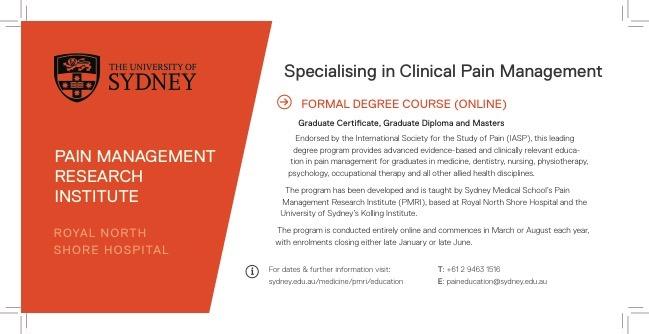







What to expect:
• Hear from leaders and experts in the industry
• Remain at the forefront of practice and policy changes
• Cutting edge clinical updates and masterclasses


• Discover new roles and emerging opportunities

• Learn with experts, mentors and peers
• Join the conversation and shape the future of pharmacy PSA22



> One Thing – did you know One Thing is Back for Season 2!: http://onething.painsci.org/
> Latest opioid data from the Australian Bureau of Statistics: Opioid induced deaths in Australia. https:// www.abs.gov.au/articles/opioid-induced-deathsaustralia
> Australia’s annual overdose report 2019 from the Pennington institute : http://www.penington.org.au/ australias-annual-overdose-report-2019/
> The Third Australian Atlas of Healthcare Variation: This series explores how healthcare use in Australia varies depending on where people live. It investigates reasons for variation that may be unwarranted, and provides specific achievable actions to reduce unwarranted variation.
https://www.safetyandquality.gov.au/atlas
> Painaustralia eNewsletter latest issue, available online at http://www.painaustralia.org.au/media/enews
> ePPOC: electronic Persistent Pain Outcomes Collaboration: The electronic Persistent Pain Outcomes Collaboration (ePPOC) is an Australasian initiative that aims to improve the quality of care and outcomes for people who experience chronic pain. For more information about ePPOC, refer to the website: http://ahsri.uow.edu.au/eppoc/index.html
> PainHEALTH website: painHEALTH‘s aim is to help health consumers with musculoskeletal pain access reliable, evidence-based information and tips to assist in the comanagement of musculoskeletal pain. painHEALTH is an initiative of the Department of Health, Western Australia. http://painhealth.csse.uwa.edu.au/
> Stanford University: CHOIR Collaborative Health Outcomes Information Registry https://choir.stanford. edu/
> Opioid Podcasts for GPs: These podcasts are produced by David Outridge GP, and FAChAM Trainee as a project under the auspices of Dr Steven Kelly Staff Specialist in Addiction Medicine, Kullaroo Clinic Gosford. A 20 week series from the Hunter Postgraduate Medical Institute (University of Newcastle) : http://www.gptraining.com.au/recentpodcasts
> Airing Pain: Pain resources via an online radio show produced by Pain Concern, a UK registered Charity: http://painconcern.org.uk/airing-pain/
> Digital Health Guide: Developed by Primary Health Network Tasmania, check out the pain resources by accessing the link https://digitalhealthguide.com.au/ Account/LogOn?ReturnUrl=%2fSpecialtyFormulary%2f2 At login, Username: connectingcare, Password: health
> Indigenous Resources: New webpage on the APS website aggregating Indigenous resources: https:// www.apsoc.org.au/Indigenous-Resources
> Choosing Wisely Australia – News & media: https:// www.choosingwisely.org.au/news-events/mediareleases/choosing-wisely-resource-addresses-patientopioid-knowledge-gap
> Over the counter codeine – changes to supply: https:// www.nps.org.au/medical-info/clinical-topics/over-thecounter-codeine-changes-to-supply
> Medicines with codeine – what you need to know: https://www.nps.org.au/medical-info/consumer-info/ medicines-with-codeine-what-you-need-to-know
> Information about opioids and chronic non-cancer pain: U-tube clip (5.39mins) https://www.youtube.com/ watch?v=8R4RT0pUCf4&feature=share&fbclid=IwAR2db hzgEAcc7B-ogq2a6Xhud5FDkbciPbdJ9pb94GnQI6pAeifG d1VP-_I
> Opioids: Communications videos: https://www.nps.org. au/opioids-communication-videos
> Codeine information hub: https://www.tga.gov.au/ codeine-info-hub
resources:
> Brainman and Pain Tool Kit translations, SEP15: http://www.aci.health.nsw.gov.au/chronic-pain/ translated-resources
> Pain Management Resources: http://www.aci.health. nsw.gov.au/resources/pain-management
> Quicksteps to Manage Chronic Pain in Primary Care: https://aci.health.nsw.gov.au/chronic-pain/healthprofessionals/quick-steps-to-manage-chronicpain-in-primary-care
Staff Specialist – Persistent Pain Service
Department of Health, Royal Hobart Hospital
Job Reference: 517734
Employment Status: Permanent full time and part time day work, working various hours up to 76 hours per fortnight commencing as soon as possible.
Hours per week: Minimum 0.5 EFT
Contact: Professor Michael Ashby
Applications Close: 11 May 2022
The Department of Health is seeking interest from suitably qualified applicants for a Staff Specialist –Persistent Pain Service (517734) vacancy at Royal Hobart Hospital. We are looking for a suitably experienced Pain Medicine specialist who would be eligible for an initial appointment as Clinical Director (HOD) of the service for two years, renewable by mutual agreement.
> Built into Quicksteps: “How to de-prescribe and wean opioids in general practice”: http://www. aci.health.nsw.gov.au/chronic-pain/healthprofessionals/quick-steps-to-manage-chronicpain-in-primary-care/how_to_de-prescribe_and_ wean_opioids_in_general_practice
> A list of helpful apps for consumers and clinicians now available at: http://www.aci.health.nsw.gov.au/ chronic-pain/health-professionals/management-ofchronic-pain
> Chronic Pain in the ED: https://www.aci.health.nsw. gov.au/networks/eci/clinical/clinical-resources/ clinical-tools/pain-management/chronic-pain-in-theed
For more information contact:
Bruce Edwards
Nursing Director – Cancer, Chronic Disease, SubAcute Care

Phone: (03) 6166 8200
Email: bruce.edwards@ths.tas.gov.au
Professor Michael Ashby
Clinical Director - Cancer, Chronic Disease and Sub Acute Care
Phone: 0408 998 744
Email: michael.ashby@ths.tas.gov.au
Dr Helen E Harris
Deputy Director of Executive Director of Medical Services (South)
Phone: 0419 666 620
Email: helen.harris@ths.tas.gov.au
Thank you for your continued support and membership of the APS!
Please note:
1. We understand that circumstances change, so each year we ask you to select your appropriate level of membership.
2. This system of self-reporting subscription levels was implemented in 2009 for the benefit and fairness of all members.
Regular A $110
Regular B $205
Regular C $310
Retired $65 Concessional Rate
Student $65 Concessional Rate
Before renewing, please ensure you review and update your member profile online. Payments can be made by Credit Card, BPAY, or Cheque.
Did you know that the Australian Pain Society is a registered charity with ACNC? Your donation will help the Society to promote the prevention and control of diseases in human beings associated with pain.
All donations of $2 or more to APS are tax-deductible.
Ms Jo Adams Nursing
Ms Cate Andrews Physiotherapy
Dr Gerardo Arwi
Pain Medicine Physician
Mr Liam Daniels Science Research
Mrs Wendy Doevendans Nursing
Ms Margaret Foulds Psychology
Dr David Herd Paediatrics
Dr Monica Huber General Practice
Dr Karin Jones
Pain Medicine Physician
Ms Elizabeth Metz Education
Dr Frank Meumann General Practice
Dr Adam Mollinger Psychiatry
Miss Michelle Nicholson Social Work
Mrs Trupti Patel Physiotherapy
Dr Richard Pilkington Chiropractic
Dr Isuru Ratnayake Palliative Care
Mrs Sophie Shephard Physiotherapy
These dates and events are current to the best of our knowledge. Due to the current health concerns with COVID-19, we recommend you make your own enquiries before planning to attend.
10-13 April 2022
Australian Pain Society 42nd Annual Scientific Meeting
In the IASP Global Year for Translating Pain Knowledge to Practice
Hotel Grand Chancellor, Hobart, TAS https://www.dcconferences.com.au/aps2022/
27-30 April 2022
European Pain Federation
12th Congress of the European Pain Federation EFIC The Convention Centre Dublin, Dublin, Ireland
https://efic-congress.org/
29 April 2022
Australian and New Zealand College of Anaesthetists & Faculty of Pain Medicine
ANZCA 2022 FPM Symposium
https://www.anzca.edu.au/events-courses/events/ major-events/fpm-national-events/2022-faculty-ofpain-medicine-symposium
17-18 May 2022
ASORC Rehabilitation Counsellors Virtual Conference 2022
Time to Shine: Inspire. Influence. Change. https://www.asorcconference.org.au/
19-21 May 2022
Research to Practice 2022
https://www.researchtopractice2022.com.au/
20-22 May 2022
Australian Rheumatology Association 2022
Annual Scientific Meeting Hybrid with Satellite Hubs https://www.araconference.com/
20-22 May 2022
Australian Psychological Society College of Clinical Psychologists
Complexity in Practice - 2022 Annual Conference
Sofitel Brisbane Central, Brisbane, QLD https://www.psychology.org.au/APS-CCLIN-Conf/2021
27-29 May 2022
Spine Society of Australia 33rd Annual Scientific Meeting
SSA 2022
Darwin Convention Centre, Darwin, NT https://dcconferences.eventsair.com/ssa-2022/
30 May - 1 June 2022
National Rural Health Alliance 16th National Rural Health Conference
Bridging social distance; Rural health innovating & collaborating
Perth Convention Centre, Perth, WA https://www.ruralhealth.org.au/16nrhc/
7-10 June 2022
Rehabilitation Medicine Society of Australia and New Zealand (RMSANZ)
5th Annual Scientific Meeting: Forging Alliances, New Horizons
Gold Coast Convention and Exhibition Centre, QLD https://www.dcconferences.com.au/rmsanz2022/
9-10 June 2022
OT Exchange 2022
Learn • Practise • Enrich
Centrepiece, Melbourne Park Olympic Boulevarde, Melbourne VIC
https://www.otausevents.com.au/otexchange2022/
29-31 July 2022
PSA 22
PSA National Conference 2022
Hyatt Regency Darling Harbour, Sydney NSW https://www.psa22.com.au/
2-4 August 2022
National Rural Health Alliance 16th National Rural Health Conference
Bridging social distance; Rural health innovating & collaborating
Brisbane Convention & Exhbition Centre, Brisbane QLD https://www.ruralhealth.org.au/16nrhc/
13-14 August 2022
2022 Neuromodulation Society of Australia and New Zealand (NSANZ 2022)
15th Annual Scientific Meeting - The Spine and Beyond: New Frontiers
Sofitel Melbourne on Collins, Melbourne, VIC https://www.dcconferences.com.au/nsanz2022
14-16 August 2022
Dietitians Australia 2022
Be Bold
Adelaide Convention Centre, Adelaide SA https://da2022.com.au/
21-24 October 2022
NZSA & ASA Combined Scientific Congress 2022
Jointly hosted by the New Zealand Society of Anaesthetists (NZSA and the Australian Society of Anaesthetists (ASA)
TSB Arena, Wellington NZ https://www.csc2022.co.nz/
15-16 November 2022
National Rural & Remote Allied Health SARRAH Conference 2022
People, Purpose, Passion: Pathways to Success https://sarrahconference.com.au/
25-27 November 2022
RACGP GP22
Melbourne Convention & Exhbition Centre, Melbourne VIC https://www.racgp.org.au/gp22/gp22-home
14-17 September 2022
Wounds Australia
Wounds Australia 2022 “Time to Heal, Time to Unite, Time to Innovate” ICC, Sydney, NSW https://wounds2022.com.au/home
6 October 2022
RECOVER Conference 2022
Optimising patient care: from interpersonal to digital connections
Sofitel Brisbane Central, Brisbane, QLD https://recover.centre.uq.edu.au/
Vision:
All people will have optimal access to pain prevention and management throughout their life.
Mission:
The Australian Pain Society is a multidisciplinary association whose mission is to advance pain prevention, management and clinical practice.
Priorities:
In order to achieve our mission, the Australian Pain Society will provide:
> Membership
> Research
> Education
> Services and resources
> Good governance and operations
> Advocacy
President:
Ms Trudy Maunsell
Acute Pain Service
Princess Alexandra Hospital
Woolloongabba QLD 4102
Tel: 07 3176 5547 Fax: 07 3176 5102
President-Elect:
Mrs Joyce McSwan
Gold Coast Primary Health Network
Persistent Pain Program, QLD and PainWISE


Tel: 0412 327 795 Fax: 07 3539 9801
Secretary:
Mrs Dinah Spratt
Physiotas Physiotherapy
Shearwater TAS 7307
Tel: 03 6428 7500 Fax: 03 6424 7811
Treasurer
Mr Tim Austin
Camperdown Physiotherapy
Newtown NSW 2042
Tel: 02 9517 1787 Fax: 02 9516 2491
ACT Director:
Dr Andrew Watson

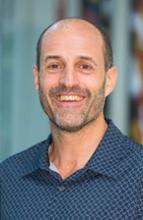
Calvary Hospital
Canberra ACT 2617
Tel: 02 6201 6352 Fax: N/A
NSW Director:
Dr Tim Ho

Inner West Pain Centre
RPA Medical Centre
Newtown NSW 2042
Tel: 02 9517 1764 Fax: 02 9517 1832
NT Director:
Dr Rav Harish
Alice Springs Hospital
Central Australian Health Service
Alice Springs NT 0871
Email: rav.harish@nt.gov.au

QLD Director:

Mrs Karalyn Huxhagen
KH Pharmacy Consulting
Mackay QLD 4740
Tel: 0418 185 972 Fax: 07 4805 6155
SA Director:
Dr Michelle Harris

Royal Adelaide Hospital and Lyell McEwin Hospital
Adelaide SA
Email: michelle.harris2@sa.gov.au
TAS Director:
Ms Bernadette Smith
Psychology Plus
South Burnie TAS
Tel: 03 6431 9959 Fax: 03 6431 9950
VIC Director:
Dr Laura Prendergast


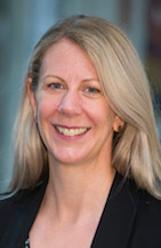
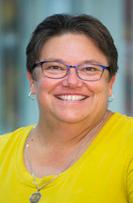
Pain Service, Austin Health
Heidelberg VIC 3084
WA Director:
Ms Jacintha Bell
Lifeworks Occupational Therapy
Subiaco WA 6008
Tel: 0451 178 880 Fax: 08 6323 3329
Immediate Past President:
A/Prof Anne Burke
Central Adelaide Local Health Network
Royal Adelaide Hospital
Adelaide SA 5000
Tel: 08 7074 2835 Fax: 08 7074 6247
SPC Chair:
Prof Kevin Keay


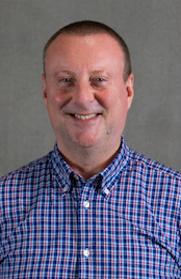
Department of Anatomy
University of Sydney
Sydney NSW 2006
Tel: 02 9351 4132 Fax: 02 9351 2817
IASP Liaison:
Professor Michele Sterling

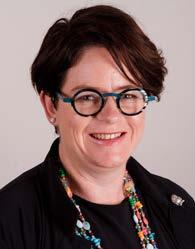

Recovery Injury Research Centre
University of Queensland
Herston QLD 4092
Tel: 07 3346 4793
Communications Coordinator:
Ms Trudy Maunsell
Acute Pain Service
Princess Alexandra Hospital
Woolloongabba QLD 4102
Tel: 07 3176 5547 Fax: 07 3176 5102
Newsletter Editor:
Dr Lincoln Tracy
School of Public Health and Preventive Medicine
Monash University
Melbourne VIC 3004
Tel: 03 9903 0288
Newsletter Assistant Editor:
Dr Joanne Harmon

School of Clinical and Health Sciences
University of South Australia
Adelaide SA 5000
Tel: 08 8302 1442
PhD Scholarship Chair:
Dr Michael Farrell
Retired
VIC Secretariat:
DC Conference & Association
Management Pty Ltd
PO Box 637
North Sydney, NSW 2059
Tel: 02 9016 4343
Email: aps@apsoc.org.au
Website: apsoc.org.au
